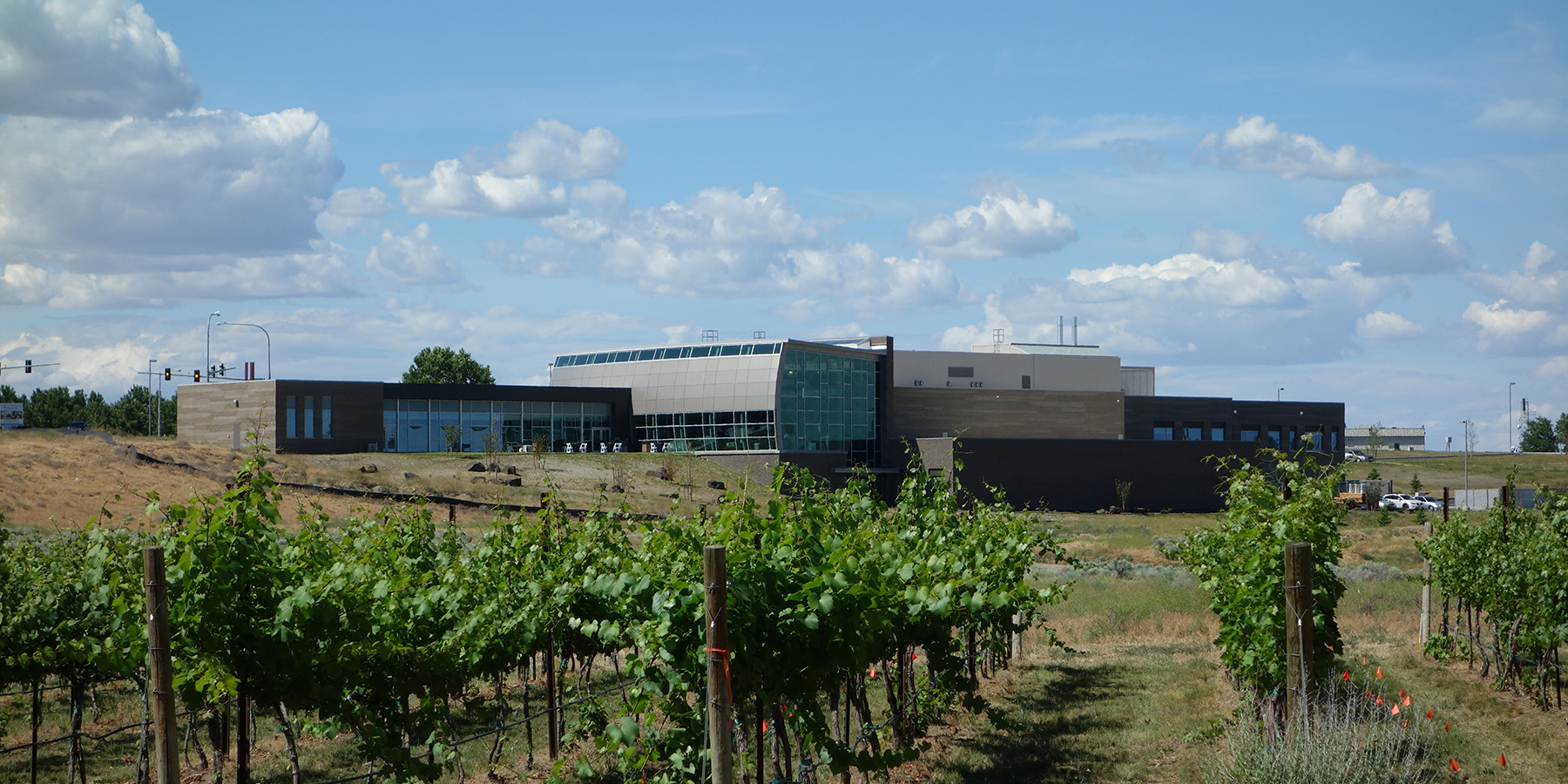Architect ALSC Architects
Owner Washington State University Tri-Cities
Size 30,000 sf
Certification LEED
Wines from Washington State win awards all around the world. Washington State University wanted to give viticulture students a learning facility that was just as worthy of renown, and that was the beginning of the Ste Michelle Wine Estates WSU Wine Science Center. The facility includes state-of-the-art laboratories, designed in collaboration with the prestigious Robert Mondavi Institute for Wine and Food Science at UC Davis, and top winemakers around the world, including major sponsorship from noted Washington winery, Chateau Ste. Michelle. The public-private partnership developed a $23M facility including classrooms, 9,500 sf of working winery, research labs, a public event area, and a wine library. In addition to teaching, the center also provides a resource for Northwest vintners to conduct tests including soil analysis, chemical comparison of vintages, and simulation of growing conditions.
Precise systems for controllable environment and in-depth research
“Microbiology and chemistry are part of the winemaking process at every stage, and help inform the creative process of blending different types of grapes,” says Jennifer Haun, enologist at Chateau Ste. Michelle who oversees the daily red winemaking operations at Canoe Ridge Estate. “For example, we analyze the levels of nitrogen in the soil during the growing season to balance the vine’s canopy with the amount of grapes it is carrying. As the grapes ripen, the winemaking team determines the perfect time to harvest using lab tests to support the winemakers’ perceptions of sugar, acid, and tannin balance when tasting the fruit in the vineyard.”
Washington winemakers benefit from the analyses performed, while the students learn first-hand the processes that are behind every great wine.
Our team developed an in-depth energy model and provided life cycle cost analysis to aid in the assessment and final selection of the building’s mechanical systems. Knowing that the highest energy use in research labs is typically ventilation, including heat and air replacement, we implemented a heat-recovery ventilation unit to allow for energy recapture from lab exhaust. Air also must be free of particles and odors to facilitate tasting as the wines move through fermentation. Our specialized air circulation and filter systems assure clean air that has accurate temperature control to support experiments in the labs. Precise temperature control is also a must during every step of making the wine. We made sure the fruit-storage room can cool down fruit temperatures overnight to 40° F. Two temperature-controlled rooms can cool wine fermentation vessels or barrels to 25° F for cold stabilization or heat them to 85° F for malolactic fermentation.
Water is also critical in the wine-making process. Before any water enters the facility, special filters remove the chlorine. For winery and fermentation floor washdown, we used a low-volume, high-pressure system that optimizes water usage, especially important in the dry climate of eastern Washington State.
Supporting students, supporting the industry
This program is key to the continued growth of the industry, providing cutting-edge research and training for the next generation of vintners and grape growers.
We designed utilities for the fermentation tanks, known as “reactors,” high-tech, wireless stainless steel fixtures that can be controlled individually, regardless of their position in the room. We also provided the utility design for another unusual feature, the growth chambers. These pods can simulate any possible growing climate to test its effects on the vines, including temperature, humidity, light, and soil composition. These precision features not only help vintners to produce exceptional wines, but to gather data for continuous improvement in future planting, harvesting, and blending.
“Since the opening of the [WSC] in 2015, we’ve seen increases in enrollment and funding for research,” says Kaury Balcom, Public Relations and Communications Coordinator for the WSU Viticulture and Enology Program. “When the center opened in 2015 we had only a handful of students pursuing a degree in viticulture and enology. Now, we have over 120 students on the two campuses in Richland and Pullman. Students from all over the country are coming here to study winemaking.”
From vineyard, varietals, and crush, to economics, marketing, and sommelier certification, the WSC provides Washington’s wine industry with valuable information and highly-trained future viticulturists.
High Performance Building
The project achieved WSU’s goal of LEED Silver Certification with high-performing mechanical systems including an air-to-air heat exchanger for the laboratory HVAC system. The WSC was featured in the January 2016 issue of Practical Winery and Vineyard magazine, and the June 2015 issue of Good Fruit Grower.
Next time you’re enjoying a WSU Blended Learning Sauvignon Blanc, raise a toast to WSU’s commitment to the Washington wine industry.
Want to learn more about the precise mechanical systems supporting local Washington producers? Check out the sweet engineering we did for Fran’s Chocolates!
